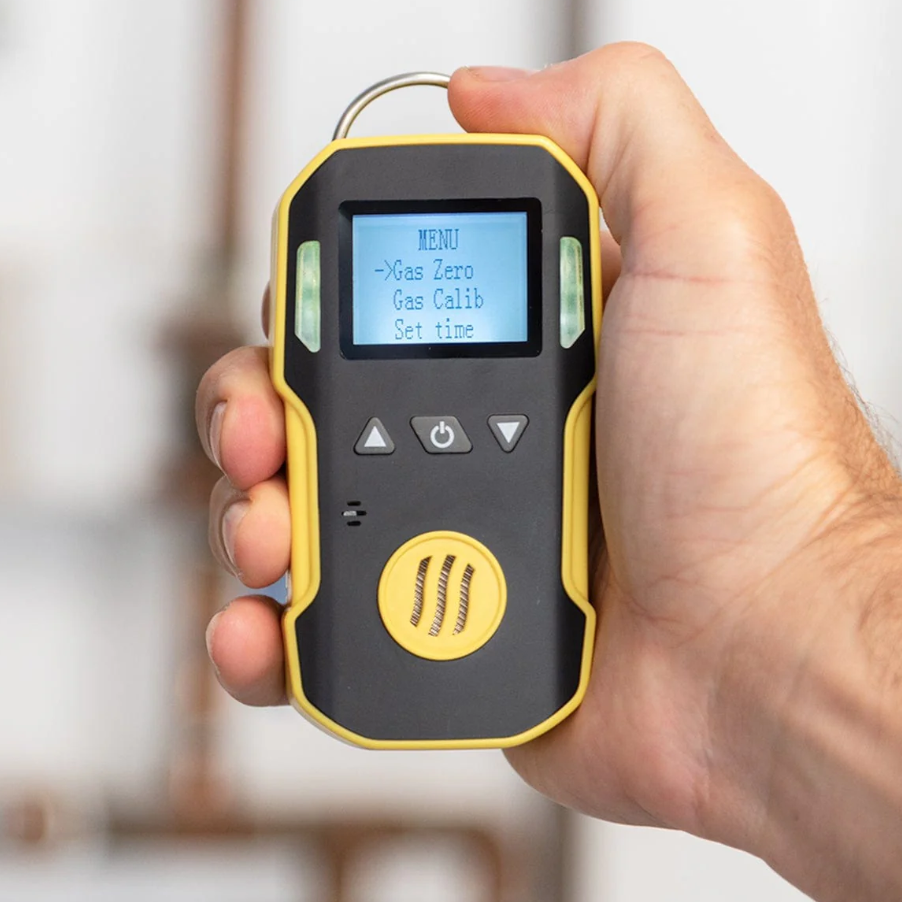Handheld CO2 meters can come in many types. The most common are parts per million range meters (ppm). However, you often need a wide range that can detect up to 100% of CO2. Wide-range detection applications include industrial settings, testing in silos, tanks, storage rooms, fermentation processes, food packaging, testing, research, and beer production.
Pros |
Cons |
|
✅ Accuracy: Precise CO2 measurement with extended range up to 100% . ✅ Portability: Lightweight, handheld design for mobile applications. ✅ Display: Clear digital readout with backlit screen for all conditions. ✅ Versatility: Suitable for multiple industrial and professional uses. |
⛔ Battery Life: Limited operational time requiring regular charging. ⛔ Calibration: Needs periodic calibration for accuracy maintenance. ⛔ Temperature Effect: Reading accuracy affected by temperature changes. ⛔ Price Point: Higher cost for extended range capability. |
What Is The Best CO2 Meter Handheld up to 100%?
The top 3 sellers of CO2 meters include:
- Forensics Detectors Carbon Dioxide Meter | 0 - 100%
- Handheld Quantek Co2 Meter
- Portable Gas Detector - Portable CO2 Detector
CO2 Meter (0-100%) Comparison Chart
We present a CO2 meter comparison chart several other models.
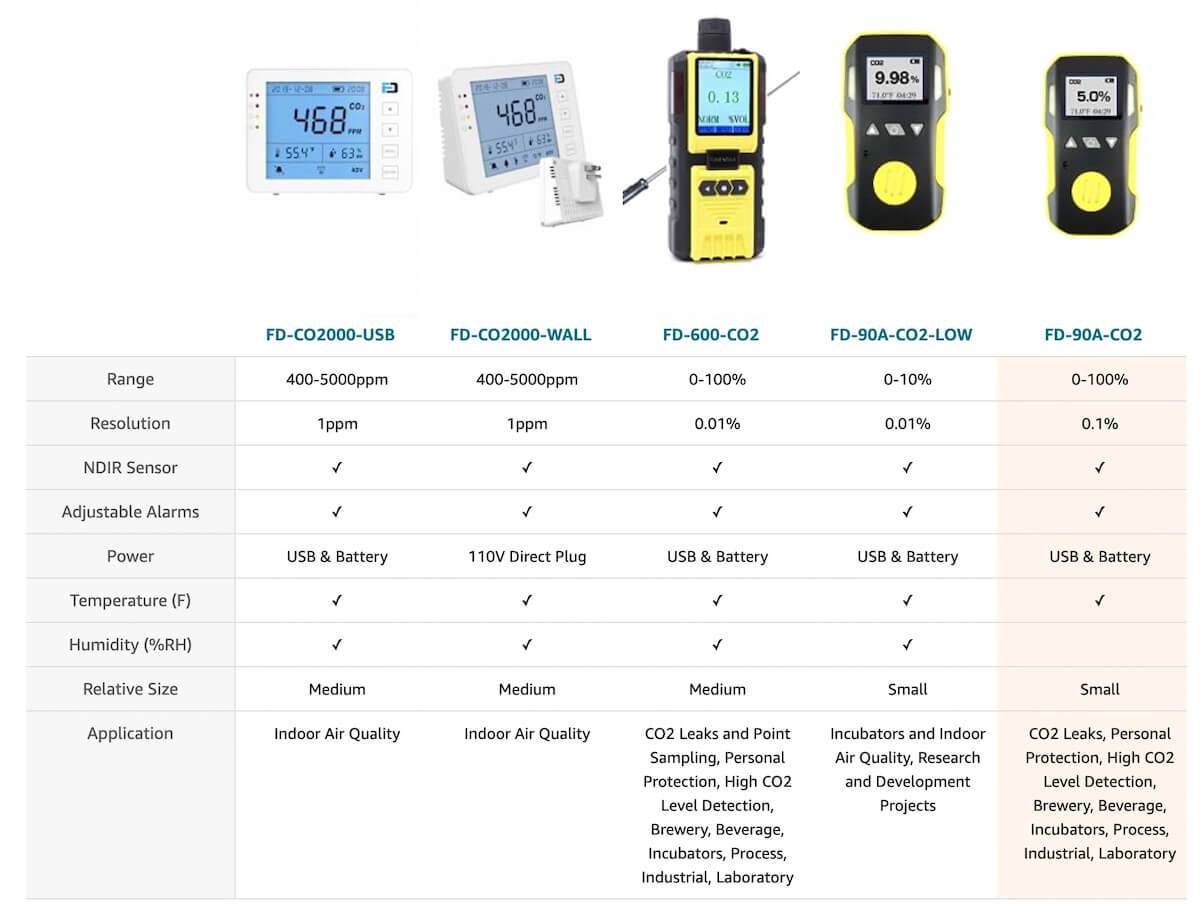
What is a CO2 Meter?
A CO2 Meter is a small handheld unit that is able to detect the CO2 molecules in the air and measure their concentration relative to the volume of other gases. A CO2 meter usually costs between $300 to $2000.
A CO2 meter gauges the carbon dioxide levels indoors, in a silo, incubator, closed space, or any environment one decides to place the meter. A CO2 meter incorporates a Non Dispersive Infra Red sensor which selectively tracks the CO2 concentration via gas absorption. These sensors employ and IR lamp source and a thermopile with a carefully tuned thin film bandpass IR filter.
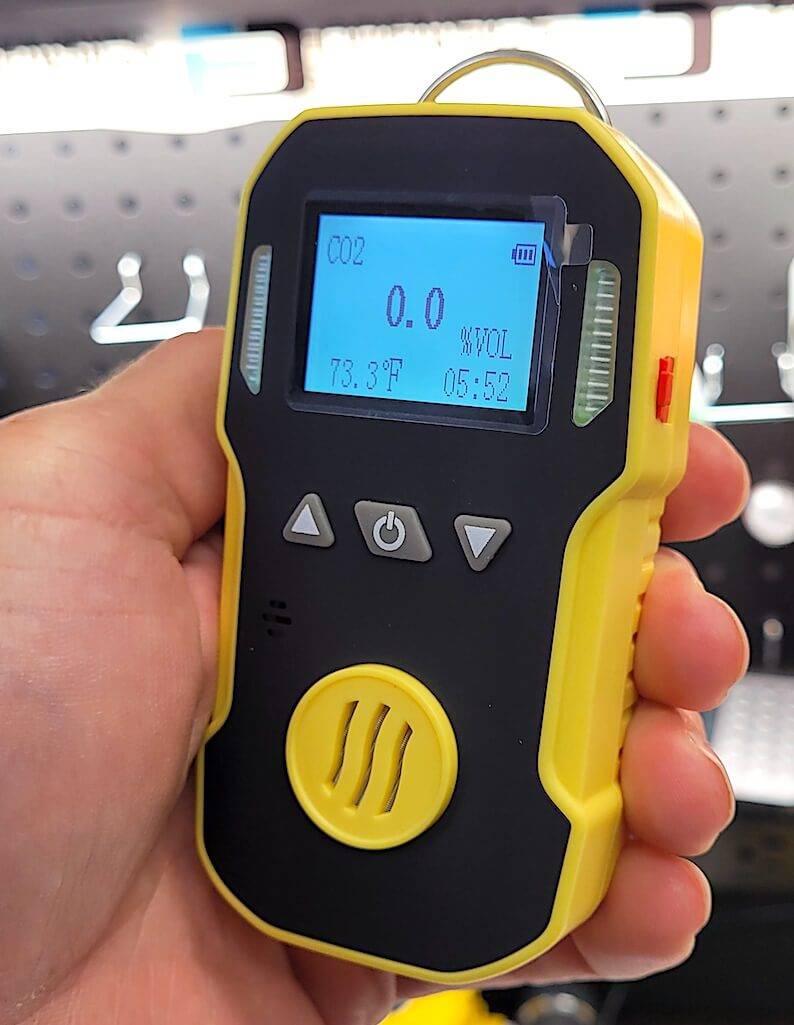
Case Study 1:
CO2 Levels in Insect Control for Grain Storage
An interesting study looks at employing CO2 derived from biogas to control pest infestation in wheat grain storage.
Controlling pests in wheat storage is paramount. Post-harvest losses occur in harvesting, threshing, cleaning, storage, processing, and transportation. Insect infestation can damage food quality, affect human health, and create a breeding ground for microorganisms. Phosphine gas is currently widely used, but pest resistance is increasing due to poor sealing and inefficient use. Carbon dioxide (CO2) as a controlled atmosphere offers a potential alternative to traditional fumigants for pest control.
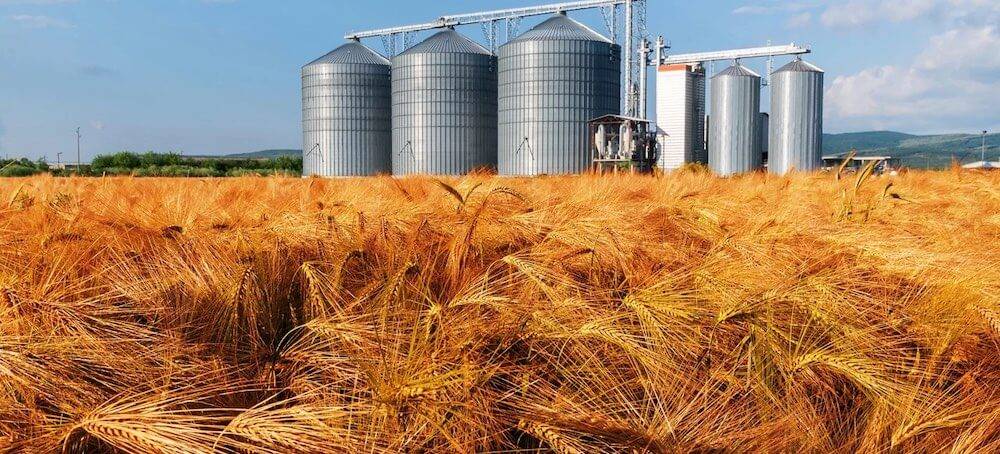
This study looked at the efficacy of used CO2 as as pest control during wheat storage. The study assessed bio-CO2 (≥98% CO2, ≤2% CH4) from a CBG plant as CO2 source for wheat storage. The study compared bio-CO2 and pure CO2 effects on Rhyzopertha dominica mortality, seed germination, and wheat quality.
It was found that bio-CO2 achieved 100% insect mortality in 1-5 days and pure CO2 in 4-8 days. The R. dominica population multiplied 3.9x in two months and 10.4x in six months in control grains.
CONCLUSION (CASE STUDY CO2 LEVELS FOR PEST CONTROL IN WHEAT STORAGE)
Utilizing bio-CO2 (≥98.0% CO2, ≤2.0% CH4) from a compressed biogas plant demonstrated superior insect mortality efficacy compared to pure CO2. The presence of CH4 and H2S in bio-CO2 potentially contributed to added insect lethality. Optimal purging efficiency was achieved at a 1.5 L/min flow rate. Across 80%, 60%, and 40% CO2 concentrations, both bio-CO2 and pure CO2 maintained insignificant (p > 0.05) seed weight loss during two and six months of controlled atmosphere storage.
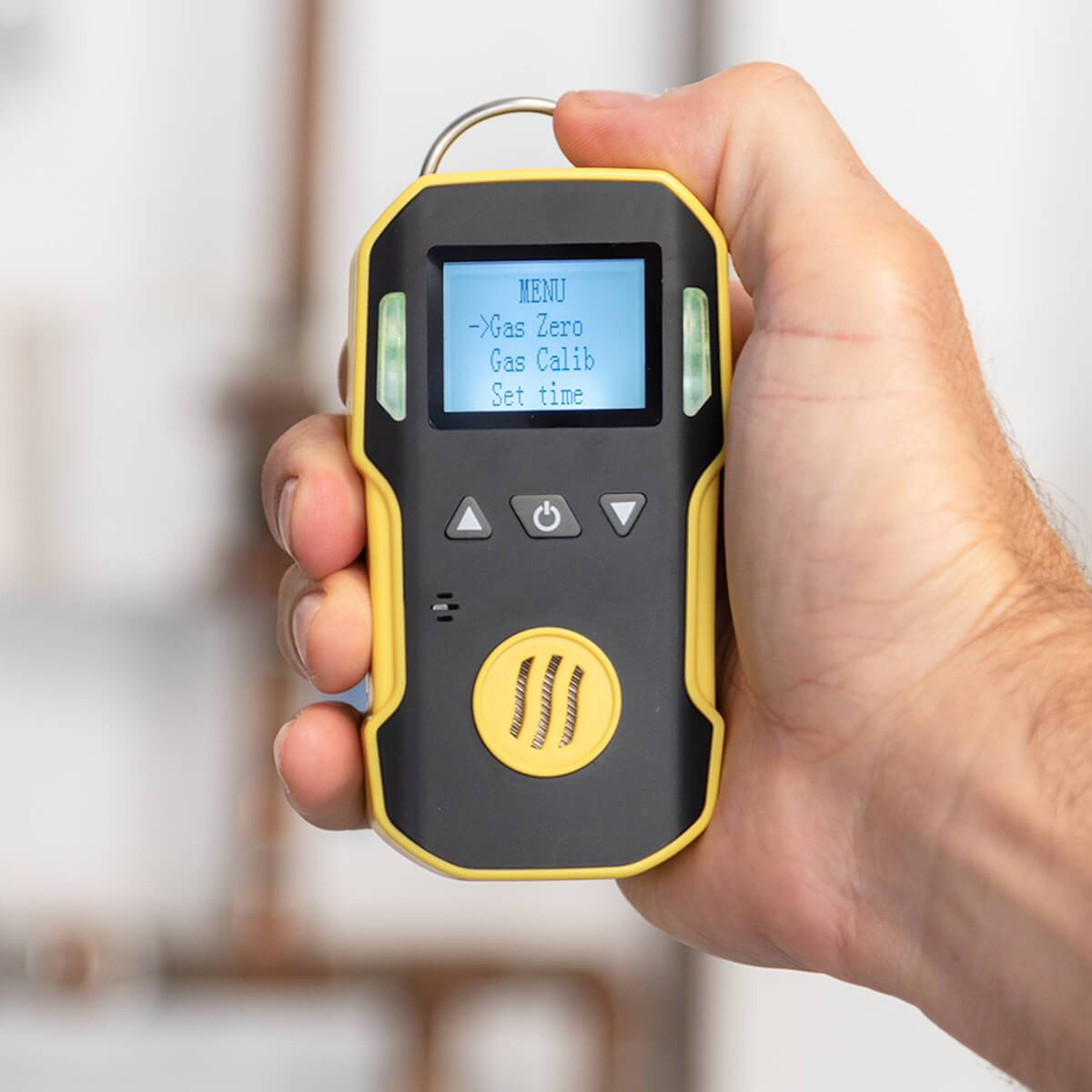
CO2 gas is what gives soda its delightful fizziness! When under pressure, CO2 dissolves in liquid, and when you open a carbonated drink, the sudden drop in pressure causes the dissolved CO2 to escape from the liquid in the form of bubbles, creating the characteristic effervescence and refreshing taste.
What is The Recommended Frequency For Calibrating My Handheld CO2 Monitor?
Our suggestion is to perform calibration every 6 to 12 months. The frequency of calibration directly influences the precision of your CO2 meter's readings. You have the option to utilize our CO2 gas calibration service or conduct self-calibration using a kit containing the following components:
Calibration Kit
Calibration Gas (CO2)
Calibration Gas Regulator (C10)
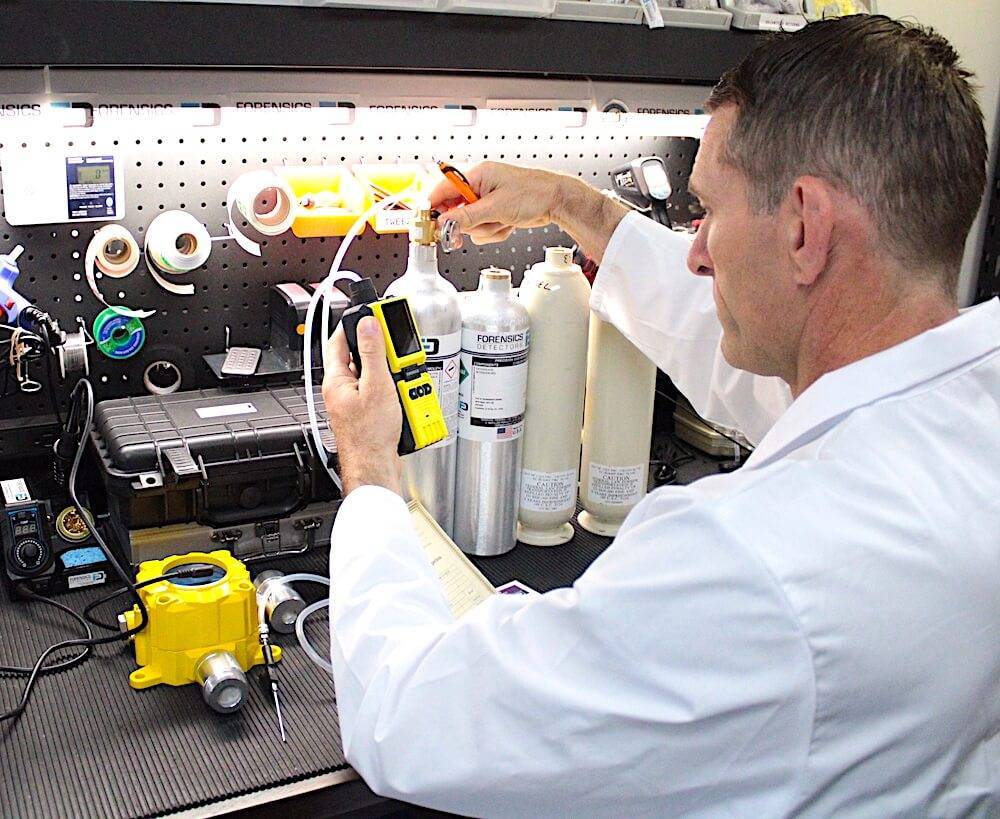
How long will the CO2 Monitor Last?
The advantage lies in the impressive longevity of CO2 monitors when compared to other gas sensors like electrochemical cells. CO2 monitors employ NDIR (Non-Dispersive Infrared) sensors, durable electronic components that generally remain operational for 5 to 15 years. Among these components, the infrared source tends to experience gradual degradation over time. Thus, an annual calibration is recommended to maintain precise and dependable performance.
Can You Smell Carbon Dioxide?
No, carbon dioxide (CO2) is an odorless and colorless gas. While you cannot smell CO2 directly, high concentrations can cause respiratory distress requiring proper detection equipment.
Conclusion
- A CO2 meter measures CO2 concentration to help with insect control for grain.
- A CO2 meter is also known as a carbon dioxide monitor, analyzer, detector, or CO2 analyzer.
- CO2 meters are widely used in diverse labs, including government, private, and academic settings.
- Remember to calibrate your incubator's CO2 meter for precise results.
About The Author
Dr. Kos Galatsis ("Dr.Koz") is the President of FORENSICS DETECTORS where the company operates from the scenic Palos Verdes Peninsula in Los Angeles, California. He is a subject matter expert on gas sensor technology, gas detectors, gas meters, and gas analyzers. He has been designing, building, manufacturing, and testing toxic gas detection systems for over 20 years.

Every day is a blessing for Dr. Koz. He loves to help customers solve their unique problems. Dr. Koz also loves spending time with his wife and his three children, going to the beach, grilling burgers, and enjoying the outdoors.
Read more about Forensics Detectors here.
Email: drkoz@forensicsdetectors.com

